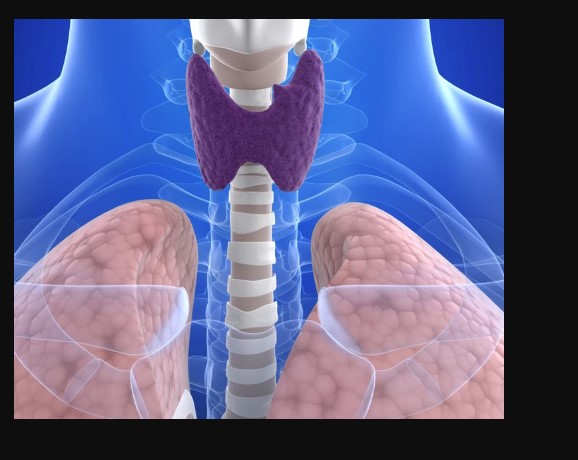Have you ever heard your doctor mention TSH levels and wondered what they mean?
If you’re like many people, medical jargon can sometimes sound like a foreign language.
In this article, we’ll break down everything you need to know about TSH levels in a way that’s easy to understand.
Whether you’re trying to decode your latest lab results or want to learn more about how your thyroid functions, we’ve got you covered.
What is TSH?
TSH stands for Thyroid Stimulating Hormone. It’s a bit like a conductor in an orchestra, directing the thyroid gland on how much hormone to produce. Your thyroid, a small butterfly-shaped gland in your neck, plays a crucial role in regulating your metabolism, energy levels, and overall health. Produces TSH. The pituitary gland produces TSH and helps keep everything in balance.
How TSH Levels Affect Your Health
Think of TSH as a thermostat for your body. Just as a thermostat maintains the temperature in your home, TSH regulates the levels of thyroid hormones in your bloodstream. When TSH levels are out of balance, it can affect almost every aspect of your health, from your energy levels to your weight and even your mood.
Understanding Normal TSH Levels
What’s considered a “normal” TSH level? Generally, normal TSH levels range from 0.4 to 4.0 milliunits per litre (mU/L). However, what’s normal can vary slightly depending on the lab and individual factors such as age and pregnancy.
High TSH Levels: Causes and Symptoms
When your TSH levels are high, it usually means your thyroid is underactive, a condition known as hypothyroidism. Causes of high TSH levels include:
- Hashimoto’s Thyroiditis: An autoimmune condition where the body attacks the thyroid gland.
- Thyroid Surgery: Removal of part or all of the thyroid.
- Radiation Therapy: Treatment for cancer that affects the thyroid gland.
Symptoms of high TSH levels can include:
- Fatigue
- Weight gain
- Cold intolerance
- Dry skin
- Hair loss
Low TSH Levels: Causes and Symptoms
Low TSH levels typically indicate an overactive thyroid, known as hyperthyroidism. Causes of low TSH levels include:
- Graves’ Disease: An autoimmune disorder that leads to overactivity of the thyroid.
- Thyroid Nodules: Small lumps in the thyroid that produce excess hormones.
- Excessive Iodine Intake: Consuming too much iodine can overstimulate the thyroid.
Symptoms of low TSH levels can include:
- Weight loss
- Anxiety
- Tremors
- Increased heart rate
- Heat intolerance
How to Test Your TSH Levels

Testing your TSH levels is a simple process involving a blood test. Your doctor will draw a small sample of blood, usually from your arm, and send it to a lab for analysis. It’s best to take the test in the morning when TSH levels are typically highest.
Interpreting Your TSH Test Results
When you receive your TSH test results, you’ll see a number that represents your TSH level. Here’s a quick guide to help interpret those results:
- Normal TSH: 0.4 – 4.0 mU/L
- High TSH: Above 4.0 mU/L (may indicate hypothyroidism)
- Low TSH: Below 0.4 mU/L (may indicate hyperthyroidism)
It’s important to discuss your results with your doctor, who can provide more context and recommend the following steps if necessary.
Treatment Options for Abnormal TSH Levels
If your TSH levels are abnormal, don’t worry—there are effective treatments available. For high TSH levels, treatment might include the following:
- Thyroid Hormone Replacement Therapy: Taking synthetic thyroid hormones to restore balance.
- Dietary Adjustments: Ensuring adequate intake of iodine and other nutrients.
For low TSH levels, treatment options can include:
- Anti-thyroid Medications: Medications that reduce the production of thyroid hormones.
- Radioactive Iodine Therapy: Reducing thyroid hormone production by shrinking the thyroid gland.
- Surgery: In severe cases, part or all of the thyroid gland may be removed.
Lifestyle Changes to Support Healthy TSH Levels
In addition to medical treatments, specific lifestyle changes can help maintain healthy TSH levels:
- Balanced Diet: Eating a diet rich in fruits, vegetables, lean proteins, and whole grains can support thyroid health.
- Regular Exercise: Physical activity helps regulate metabolism and supports overall well-being.
- Stress Management: Techniques like meditation, yoga, and deep breathing can help reduce stress, which can impact thyroid function.
FAQs About TSH Levels
1. Can stress affect my TSH levels?
Yes, stress can impact your TSH levels. Chronic stress can affect the pituitary gland’s function and, subsequently, the production of TSH.
2. Are there any foods I should avoid if I have abnormal TSH levels?
Certain foods, such as those high in iodine (like seaweed), can affect thyroid function. It’s best to discuss dietary restrictions with your healthcare provider.
3. How often should I test my TSH levels?
The frequency of TSH testing depends on your health situation. If you’re on thyroid medication, your doctor may recommend testing every 6-12 months.
4. Can exercise help regulate TSH levels?
Yes, regular exercise can help maintain healthy TSH levels by supporting overall metabolic function and reducing stress.
5. Is it possible for TSH levels to return to normal without medication?
In some cases, lifestyle changes and addressing underlying health issues can help normalize TSH levels without medication. However, this should be done under the guidance of a healthcare provider.
Conclusion
Understanding your TSH levels is critical to managing your thyroid health and overall well-being. Whether your levels are high, low, or within the normal range, being informed can help you make better health decisions.
If you have any concerns about your TSH levels, don’t hesitate to reach out to your healthcare provider for personalized advice and treatment options.

